Arboreal Methodologies: Getting Lost to Explore the Potential of the Non-Innocence of Nature
by Jayne Osgood, Suzanne Axelsson, Tamsin Cavaliero, Maire Hanniffy, and Susan McDonnell
It began with an email invitation that wended its way through cyberspace
(0.3g CO2e)
Then a Zoom meeting to virtually connect and plan a workshop
(0.6kg CO2e)
Another few emails back and forth
(1kg CO2e)
Another Zoom meeting to work out the logistics
(0.6kg CO2e)
Culminating in public transport to the airport
(2.8kg CO2e)
A flight to North-West Ireland from London
(145.2kg C)2e)
Public transport from the airport to the hotel
(2.8kg CO2e)
It takes six mature trees to offset 160kg CO2e…
Taking arboreal methodologies to North-West Ireland was not without costs, implications, or guilt. Arboreal methodologies (Osgood, 2022; Osgood & Odegard, 2022; Osgood & Axelsson, 2023) have emerged from childhood studies that make materiality, affect, temporality, and human connection to the more- and other-than-human central to inquiries. Unlike prevailing approaches in childhood studies concerned with making the child central to research (Osgood, 2023, in press), posthumanist approaches seek to pursue a different logic (Osgood et al., 2022) that understands the child as active in producing and being produced by the world around them. This draws into sharp focus our entangled place within the world, the limits of human exceptionalism (to know and fix the world), and crucially to our response-abilities to attune to the complexities of life on a damaged planet (Haraway, 2016; Tsing, 2015). Feminist posthumanist approaches in childhood studies are important for thinking (again) about “sustainability” and the “environment” because they shift the focus away from “nature” being in the service of the human to the complex inseparability of natureculture (Haraway, 2008), and the demands it makes of us to sit with the discomfort of knowing that we are always implicated and infected. It is impossible to take refuge in nature to escape the terrifying realities of culture—they are always inextricably interwoven—if only we create the time to notice, to attune to the world’s differential becoming.
Arboreal methodologies invite immersive, affective bodily engagements with natureculture as opportunities to experience the world differently and to take the non-innocence of nature more seriously. This is especially pressing for childhoods of the Anthropocene, the current geopolitical epoch characterized by human-induced destruction of planet earth as evidenced through the increased presence of extreme emergencies from forest fires, floods, and life-threatening plagues. Posthumanism underlines the desperate need to pursue another logic in childhood pedagogy and research—one that refuses biophilia, that is, the notion that human beings have an innate sense of connection to nature, that nature is wholesome and pure—and one that offers a sanctuary for authentic childhoods to find expression, or be rediscovered in adulthood.
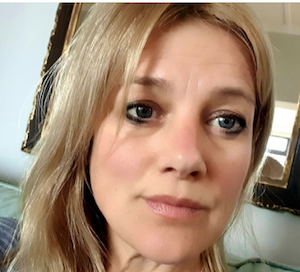 Dr. Jayne Osgood, PhD is professor of childhood studies at the Centre for Education Research & Scholarship, Middlesex University, United Kingdom and also holds a Professor II post at Hogskolen i Innlandet, Norway. Her feminist approach to research is framed by critical posthumanism and an enduring commitment to address inequities of all kinds. She has published extensively in the post-paradigms with over 100 publications in the form of papers, chapters, and books. Jayne also has various editorial roles, including the journals Reconceptualizing Educational Research Methodology and Gender & Education; two book series for Bloomsbury (Feminist Thought in Childhood Research; & Postdevelopmental Approaches to Childhood); and a further series for Springer (Key Thinkers in Education).
Dr. Jayne Osgood, PhD is professor of childhood studies at the Centre for Education Research & Scholarship, Middlesex University, United Kingdom and also holds a Professor II post at Hogskolen i Innlandet, Norway. Her feminist approach to research is framed by critical posthumanism and an enduring commitment to address inequities of all kinds. She has published extensively in the post-paradigms with over 100 publications in the form of papers, chapters, and books. Jayne also has various editorial roles, including the journals Reconceptualizing Educational Research Methodology and Gender & Education; two book series for Bloomsbury (Feminist Thought in Childhood Research; & Postdevelopmental Approaches to Childhood); and a further series for Springer (Key Thinkers in Education).
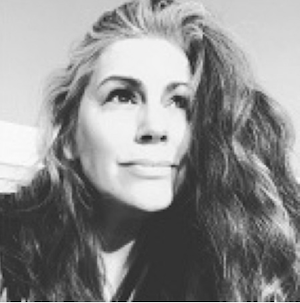 Suzanne Axelsson works as a pedagogical consultant using experience, inspiration, and research in listening, philosophy with children, and Indigenous knowledge to create democratic learning and play spaces in early childhood education. She works on the EY program at the Department of Child and Youth Studies, Stockholm University, as well as in preschools with children and educators. Suzanne has a Master’s in Early Childhood Education and has travelled globally to hold workshops, presentations, and visit EY settings. She writes about play, listening, neurodiversity, and sustainability on her blog.
Suzanne Axelsson works as a pedagogical consultant using experience, inspiration, and research in listening, philosophy with children, and Indigenous knowledge to create democratic learning and play spaces in early childhood education. She works on the EY program at the Department of Child and Youth Studies, Stockholm University, as well as in preschools with children and educators. Suzanne has a Master’s in Early Childhood Education and has travelled globally to hold workshops, presentations, and visit EY settings. She writes about play, listening, neurodiversity, and sustainability on her blog.
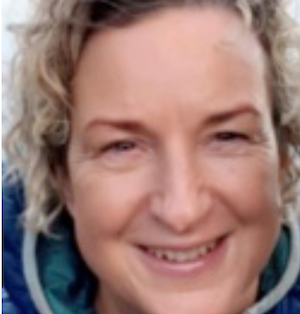 Dr. Tamsin Cavaliero is a lecturer in the Department of Social Sciences at ATU Sligo. Her research interests include creative methodologies, educational inclusion, group work, sustainability, and Traveller and Roma communities. Prior to taking up her lecturing post, she worked in practice in a variety of posts with Traveller Youth in both formal and informal educational settings and was involved in arts-based projects with Travellers. Tamsin is a trained graphic facilitator regularly involved in graphic facilitation work, which focuses on family support, youth participation, inclusive research practices, social prescribing, and counseling.
Dr. Tamsin Cavaliero is a lecturer in the Department of Social Sciences at ATU Sligo. Her research interests include creative methodologies, educational inclusion, group work, sustainability, and Traveller and Roma communities. Prior to taking up her lecturing post, she worked in practice in a variety of posts with Traveller Youth in both formal and informal educational settings and was involved in arts-based projects with Travellers. Tamsin is a trained graphic facilitator regularly involved in graphic facilitation work, which focuses on family support, youth participation, inclusive research practices, social prescribing, and counseling.
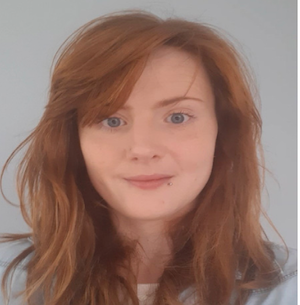 Dr. Máire Hanniffy is a sociology and group work lecturer on a number of programs, including the BEd in Early Education and Care, the BA in Sociology and Politics, and the MA in Social Work at ATU Sligo. Her research interests include group work, childhood, social and ecological justice, and teaching and learning. Most recently, Máire was part of the project team for the “Head, Hands, Heart Embedding Climate Concerns in the Social Sciences” project. This project aimed to promote transdisciplinary learning in relation to socio-ecological crises, with a focus on building approaches for social and ecological justice and resilient and flourishing communities.
Dr. Máire Hanniffy is a sociology and group work lecturer on a number of programs, including the BEd in Early Education and Care, the BA in Sociology and Politics, and the MA in Social Work at ATU Sligo. Her research interests include group work, childhood, social and ecological justice, and teaching and learning. Most recently, Máire was part of the project team for the “Head, Hands, Heart Embedding Climate Concerns in the Social Sciences” project. This project aimed to promote transdisciplinary learning in relation to socio-ecological crises, with a focus on building approaches for social and ecological justice and resilient and flourishing communities.
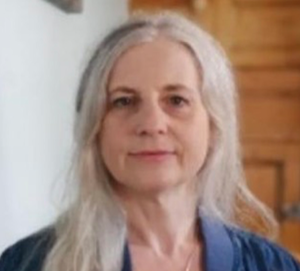 Dr. Susan McDonnell is a sociologist and lecturer at Atlantic Technological University. She teaches across a range of undergraduate and postgraduate programs and is currently chair of BA (hons) Sociology & Politics. Susan’s teaching spans the interconnected fields of childhood/youth, inequality, race, and technology, as well as collaborative arts that engage students directly with community participants. Her research concerns Irish childhoods, race, and belonging in the context of contemporary discourses on migration, utilizing art-based methods. Susan’s research interests include children’s rights and agency, migration and race in children’s lives, children’s cultures, and visual and narrative research methods.
Dr. Susan McDonnell is a sociologist and lecturer at Atlantic Technological University. She teaches across a range of undergraduate and postgraduate programs and is currently chair of BA (hons) Sociology & Politics. Susan’s teaching spans the interconnected fields of childhood/youth, inequality, race, and technology, as well as collaborative arts that engage students directly with community participants. Her research concerns Irish childhoods, race, and belonging in the context of contemporary discourses on migration, utilizing art-based methods. Susan’s research interests include children’s rights and agency, migration and race in children’s lives, children’s cultures, and visual and narrative research methods.